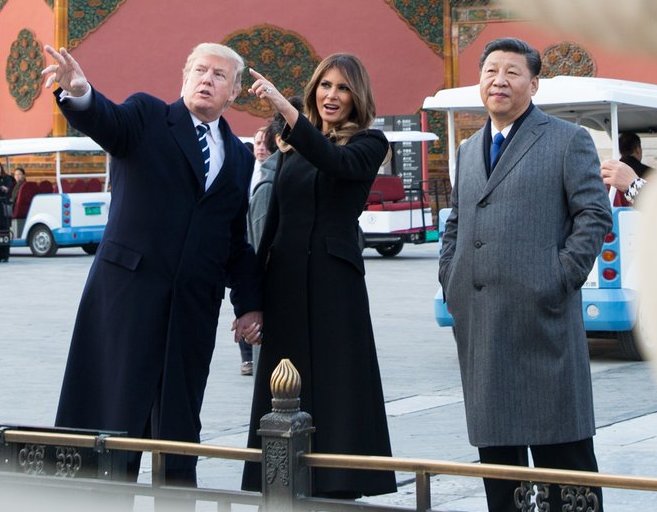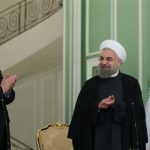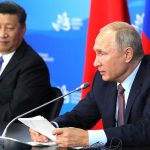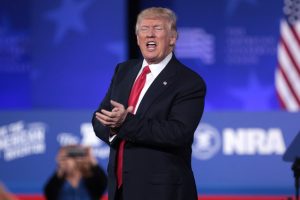by Daniel Wagner
When the Trump administration imposed unilateral tariffs on the majority of Chinese imports, it badly miscalculated the Chinese response. Rather than buckle under the pressure, the Chinese government has doubled down and dug in its heels. It has refused to agree to a trade agreement that would radically alter the nature of the trading relationship between the two countries.
This staring contest is likely to become a permanent feature of the bilateral relationship. Donald Trump and Xi Jinping have proven to be both stubborn and adept at using the trade issue to whip up nationalistic fervor. Indeed, the trade issue has turned into a flag-waving exercise, and both leaders intend to wave their respective flags for as long as they can before considering how to undo the damage. Both leaders are guilty of weaponizing their countries’ economic power. The art of diplomacy appears to have gotten lost in a morass of egos, bluster, and chest-beating.
So, what do both leaders ultimately want?
Washington is looking for three things from Beijing: to observe the same set of rules everyone else does, to level the playing field with respect to a more equal trading relationship, and to act as a responsible global leader by doing its part to promote global development and maintain peace. On its face, there is nothing unreasonable about any of this. But from Beijing’s perspective, it is merely doing things the Chinese way and sees no reason for any other nation to object to its actions.
Beijing, in turn, wants Washington to: mind its own business and not interfere in what it considers to be Chinese domestic issues, practice what it preaches, stop being hypocritical about its own rhetoric versus its own actions around the world, and stop trying to impede China’s rise. There is clearly a mismatch between what both are seeking and what either may be prepared to deliver. What differentiates this challenge from that of any other two nations is that both countries need each other in order to prosper; either of them can cause insurmountable problems politically, economically, and militarily for the other.
The two sides remain worlds apart, for reasons that are unique to each side’s perspective. America has had enough of the tremendous disparity in the bilateral trading relationship, intellectual property theft, and Beijing’s expectation that it can continue to create an alternative world order crafted in China’s image. Washington sees Beijing’s failure to agree to create a more even trade playing field as little more than intransigence, and it believes that Beijing would act similarly if it were in its position.
Beijing would no doubt have preferred a more traditional approach to addressing these issues, through protracted diplomacy and a gradual ratcheting down of the trade imbalance over a period of years to achieve something approaching parity. It does not appreciate Trump’s bullying tactics or the administration’s presumption, apparently revealed during negotiations, that Xi would consider amending Chinese law to change the nature of its state-controlled system. Beijing sees America as a declining power that refuses to admit that China’s rise is inevitable or that its impact on the world is already in some respects greater than Washington’s.
In fairness, however, Beijing does not respond well to a simple “please.” Washington has tried this on numerous occasions, to little avail. A topic as grand and hugely significant as the bilateral trade relationship is not really a candidate for patient, prolonged negotiation. The problem, from the American perspective, has reached a critical level, which, frankly, lends itself to a two-by-four upside the head. That is exactly what Trump has delivered, and in Washington’s view, exactly what Beijing has earned.
Going forward, little of substance can be achieved without a common framework for negotiation. Both sides are hurting and one would think that there would be plenty of incentive to find a sensible path forward. Yet, such a path is likely to continue to remain elusive following the G20 meeting later this month, where Trump and Xi have agreed to meet. The bad blood that has coagulated between them will not likely dissolve any time soon.
The world should more rightly expect that, if anything, both men may confirm that that disagreements will endure well into the future. It should expect the partially frozen relationship will develop into a fully-fledged deep freeze. Both the American and Chinese people have now been conditioned to expect more of the same and are modifying their consumption patterns accordingly. Similarly, American and Chinese businesses are also seeking to do business elsewhere, and Beijing has made no secret of its intention to resume its previously well-worn Cold War path to Moscow in search of an alternative alliance and business partner.
Trump’s quick victory following his threat of tariffs on Mexico clearly will not work with China, at least not in the near term. China’s manner of doing business globally—which includes the institutionalized use of cyber theft and the theft of intellectual property—are unlikely to disappear over the course of time. As part of its quest to continue to create a world in its own image, China benefits from an array of tools at its disposal, such as the ability to source from a wide array of countries, its relationship with dozens of nations partaking in the Belt and Road Initiative, and many others through which it purchases vast amounts of raw materials. This gives China leverage and options.
That said, if Beijing wants to envision a path toward collaboration with America, in a whole host of arenas, it needs to equalize the bilateral trading relationship and stop its cyber intrusions and theft of intellectual property. At this juncture, that appears about as unlikely as the notion that Trump will suddenly end the tariffs or that China and the US will soon be engaging in joint military exercises in the South China Sea. Both leaders and peoples already appear to be resigned to a frozen bilateral future.
Daniel Wagner is CEO of Country Risk Solutions and author of the new book China Vision.






A one sided pro American article.